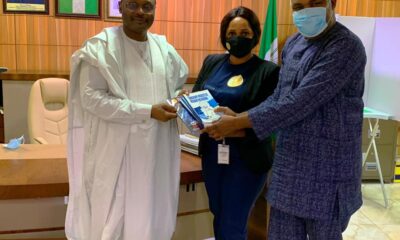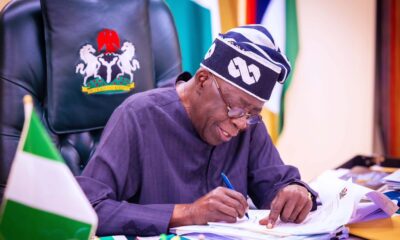Opinion
NIGERIA’S CRIMES AGAINST CHILDREN – By Emmanuel Onwubiko
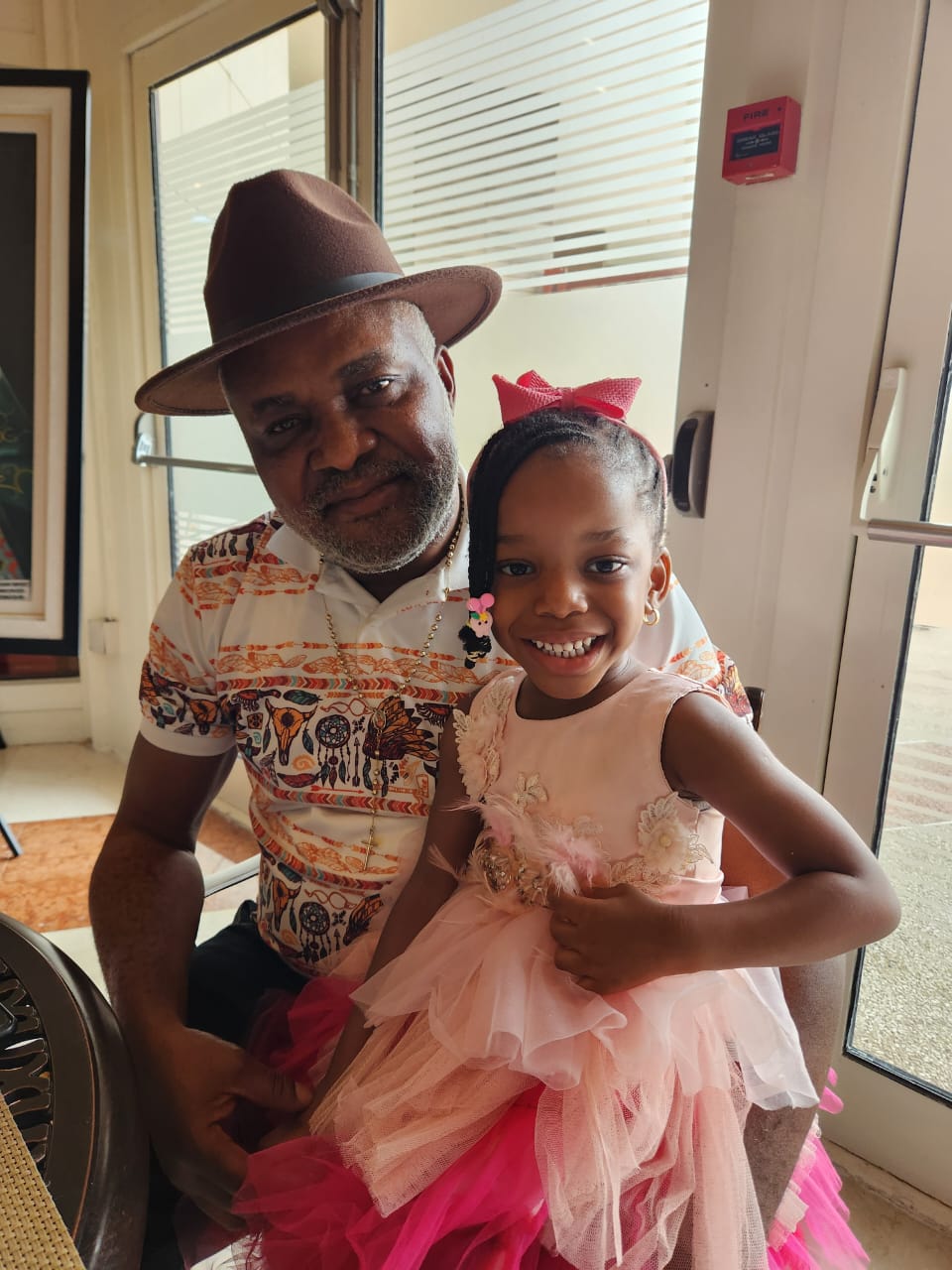
There was this authoritative but dreadful report from a global rating body that stated that Nigeria is the most dangerous place on earth to be born. Aside the spiralling cases of child mortality and morbidity, Nigeria has been made a dangerous place by political leaders due to unprecedented violence and terrorism all over the length and breadth of Nigeria. There were two other corollary or corresponding reports that sounded frightening and alarming one of which was released in 2023 which says that Nigeria is the 15th most criminally disturbed nation in the World.
The second report said that Nigeria is the third most terrorised nation after Afghanistan and Syria under erstwhile president Assad. What makes Nigeria dangerous, indeed too dangerous for new borns is due to the collapsing national healthcare system and the fact that public health care system is non-existent. The fact is that millions of children are actually born as we speak outside of the hospital environment due to absence of any kind of health care facilities. For instance, in Imo state, most populated centres don’t have functional primary healthcare facilities so much so that families travel for many miles to go to Okigwe, Orlu or Owerri to attend the existing private hospitals and the very few poorly equipped publicly owned hospitals.
Again, Nigeria has no centralised agency to care for the children like it is in UK, USA, Canada, Australia and many other industrialised countries. Nigeria has a certain ministry of Women Affairs but there is no ministry of Children Affairs like it is obtained for instance in Great Britain whereby Nigeria gained political independence in 1960. In Great Britain, there is a Minister of State (Minister for Children and Families) with the following
Organisations: Department for Education and these responsibilities as would be disclosed in the subsequent paragraphs.
The minister’s responsibilities include:
*child protection (including protection from child sexual exploitation and safeguarding),
*local authority children’s social care and family law;
*children in care, care leavers and adoption
*childcare policy including delivery of the 30 hours free childcare offer, inspection and regulation;
*Early years policy including inspection, regulation and literacy and numeracy;
*Other functions of the minister in charge of children affairs are for: *funding for publicly funded schools in England to raise the attainment of disadvantaged pupils of all abilities (pupil premium and pupil premium plus);
*funding and policy on free school meals
special educational needs and disabilities;
*school sports and healthy pupils
cadets and military ethos in the education system; and
Improving social mobility in the 12 opportunity areas.
Some states of the federation have child welfare departments under the ministries of Women Affairs but there is no single structured, institutional and systematic platform dedicated for affairs of children. This absence is the reason there are multidimensional crimes by adults against children including child rape and sexual violations, domestic abuses, child trafficking and the mother of all organised crimes against Nigerian children known as the phenomenon of BABY FACTORIES.
Ben Shemang, an experienced journalist recently penned a historical piece on why Nigeria’s ‘baby factories’ continue to thrive and this was published 03/18/2024.
He reports that child traffickers in Nigeria often kidnap girls and young women, take them to isolated places, and impregnate them. When they give birth, their babies are sold to childless couples.
A pregnant woman who was freed by police officers with other girls and women that had been held captive in Lagos, Nigeria
Some young female Nigerians told DW that they remain vulnerable because of their poor living conditions.
So-called baby making factories are facilities in Nigeria to which girls and young women are lured, impregnated and held against their will until they give birth.
The “factories” are usually small, illegal facilities parading as private medical clinics that house pregnant women and subsequently offer their babies for sale.
In some cases, young women have been held against their will and raped before their babies are sold on the black market.
The practice is largely prevalent in the southeastern states of Abia, Lagos, Anambra, Ebonyi, Enugu and Imo.
Around 200 underground baby factories have been shut over the last five years, according to Nigerian security agencies, however new facilities open to replace the closed ones.
He reported that earlier last March, police officers stormed a hideout in Abia where they rescued 16 pregnant girls and eight young children.
Maureen Chinaka, a police spokeswoman revealed that the rescued girls were between the ages of 17 and 27 and had been told that they would be paid to leave the baby factories without their babies.
Last June, 22 pregnant young girls and two babies were rescued from a facility in the same state, where they had been held hostage.
Why do the factories exist?
There is a thriving market for babies among couples who are struggling to bear their own children. They are willing to pay between 1 million naira (€576) and 2 million naira (€1,152) for a baby.
There is a higher demand for male babies, which tend to be sold at a higher price than baby girls.
Clare Ohunayo, a Nigerian activist and educationist, told DW that as long as there is demand for babies, the practice will prevail.
Supplying a demand
Ohunayo blames it on high levels of poverty and the stigma that comes with being a childless couple in Nigeria.
“The desperation that drives the baby factory has two sets of players. The first set is driven by the fear of poverty as a result of the socio-economic conditions of Nigeria,” she said.
Those who own these facilities where the girls are kept, the men who impregnate them, and the girls themselves are all pushed into it by poverty, according to Ohunayo.
Some young female Nigerians told DW that they remain vulnerable because of their poor living conditions.
“This baby booming industry, even though it has been in existence, the reason it’s coming up [is] because people are really really stressed in terms of striving for a daily living,” a young resident of Abuja said.
Another Abuja resident told DW that: “We are experiencing an increase in crime rates due to hardship and poverty.”
But not everyone blames it on poverty.
“Actually I think what is causing this menace has to do with moral decadence. Immoral people are desperate to make money. This is why you see this kind of thing happening, but to me I think it’s very bad,” said one Nigerian man.
Giving birth to children is considered significant in many African societies, and often couples unable to have their own children face humiliation, even from family members.
The demand for male children makes the practice especially lucrative, according to police officials.
“On the other side you have childless couple who want to avoid the stigma of [being] childless,” said Ohunayo, describing a major cultural factor behind the baby factories.
A foster family with a difference
Ending the baby factory business
Florence Marcus, a lawyer with the Abuja-based Disability Rights Advocate Center told DW there are laws to help tackle the menace.
“This issue of baby factories is a gross violation of the rights of the victims, especially these young ladies who are often taken to these facilities without their consent,” she said.
“The Violence Against Persons Prohibition Act prohibits all forms of violence against person, particularly women and girls. The law provides maximum protection and effective remedies for the victims and also punishment for the offenders.”
Several arrests have been made across the Nigerian states in which the practice is prevalent.
Zakaria Dauda, spokesman for the National Agency for the Prohibition in Trafficking in Persons, a government body, told DW that the organization will continue to make arrests and ensure that pepatrators are punished.
“We know [with] the issue of baby factory most victims are usually young girls. We warn people of the dangers of such vices,” he said.
“And those who become suspects, we take them [in] for people to also know that there is a crime being perpetrated called sale of babies.”
Besides, the National Agency for the Prohibition of Trafficking in Persons, NAPTIP has expressed grave concern over the escalating incidents of baby factories and child trafficking across the country.
The then Director-General of the agency, Prof. Fatima Waziri-Azi, revealed that there had been a surge in reports and public outcry regarding the sale of babies and the existence of clandestine facilities that exploit vulnerable individuals, including young girls and minors.
Waziri-Azi, in a statement signed by NAPTIP’s Communication Officer, Adekoya Vincent, cited the recent uncovering of a baby factory in Abia State by the Department of State Services (DSS) as one of numerous reports.
She said, “One of the most recent incidents occurred in Umunkwa village, located in the Umuafai Ndume Ibeku area of Umuahia North Local Government, Abia State, where ten victims were rescued from a baby factory,” she said.
“The victims, aged between one and twenty-four years, included seven young girls, six of whom are pregnant, one lactating mother, and two boys who are minors. The factory was operated by a 63-year-old woman, Chinyere Nkwocha, who was apprehended by the DSS. The victims and suspects have been handed over to NAPTIP for further investigation and action.”
Below are some cases reported by NAN so far in the year and can be subsequently tracked for progress.
2 January, Rivers (South-south):
Police arrest couple over rape, assault of minor
The police in Rivers State confirmed the arrest of a couple over alleged rape and assault of a13-year-old girl in Port Harcourt, Rivers State, South-South Nigeria.
The wife reportedly assaulted the girl by stripping her and inserting pepper into her private part after accusing her of having sexual intercourse with her husband.
The spokesperson for the police in the state, Grace Iringe-Koko, a superintendent of police, disclosed the arrest of the girl in an interview with NAN in Port Harcourt on 2 January.
Goodness, the mother of the teenager, whose full name was withheld to avoid stigmatisation, recounted the incident to NAN.
A resident of Rupokwu town in Obio/Akpor Local Government Area, Goodness revealed that the assault on her daughter occurred on the evening of 29 December 2024.
According to her, earlier that day, the wife visited her shop and asked the teenager to follow her to her apartment and assist her with chores.
Goodness, who said she was later alerted to the assault on her daughter by neighbours, recalled that on the fateful day, the man sent his wife and her friend on an errand, leaving the teenager alone with him in the house.
The distraught mother reported that after the two women had left the apartment, the man attacked her daughter and allegedly raped her multiple times, threatening her to remain silent.
Prince Wiro, the National Coordinator of the Centre for Basic Rights Protection and Accountability Campaign, condemned the alleged torture of the minor, calling it inhumane and barbaric.
8 January, Bauchi (North-east):
Man arrested for raping girl in uncompleted building
On 8 January, the Nigeria Security and Civil Defence Corps (NSCDC) Command in Bauchi State, North-east Nigeria, announced the arrest of a suspect accused of raping a 12-year-old girl in an uncompleted building in Misau Local Government Area of the state.
The State Commandant of NSCDC, Oloyede Oyerinde, said the rape suspect was arrested on 27 December for allegedly raping the girl in an uncompleted building.
Mr Oyerinde announced the arrest of Mr Oyerinde alongside nine others detained for various crimes committed during the 2024 yuletide period.
The official, who said the other suspects were arrested for vandalism and theft, warned perpetrators to desist from vandalism and other crimes or face consequences.
9 January, Ekiti (South-west):
38-year-old man allegedly raped minor in uncompleted building
A chief magistrate’s court in Ado Ekiti remanded a 38-year-old man, Olasunkanmi Francis, in the Ado Ekiti Correctional Centre for allegedly defiling a 13-year-old minor.
The prosecutor, Elijah Adejare, a police inspector, told the court at the hearing on 9 January, that the defendant committed the offence on 23 December 2024 at Efon Alaaye-Ekiti.
The defendant allegedly lured the minor into an uncompleted building and defiled her while she was on an errand.
The prosecution said the offence contravened section 31 of the Child Right Law of Ekiti State, 2021.
The magistrate, Kehinde Awosika, ordered the remand of the defendant in the correctional centre, pending legal advice from the office of the Director of Public Prosecution (DPP).
She adjourned the case until 7 February for mention.
10 January, Edo (South-south):
Other most dangerous crimes against children of Nigeria are the rampant cases of violent sexual abuses of children just as the not too far away from now,the police detained three men for the alleged gang-rape of a 12-year-old girl in Okpella, Etsako East Local Government Area of the state.
The state Commissioner of Police, Umoru Ozigi, said this on Friday, 10 January, in Benin, the Edo State capital, South-south Nigeria, when the Administrator, Office of Edo State First Lady, Edesili Anani, visited him.
Ms Anani said the minor was allegedly gang-raped by five men on 24 December 2024, at Igiafodo Awuyemi in Okpella.
She said the girl had visited the victim at the Senator Daisy Ehanire Danjuma Women Centre, Benin.
She vowed that perpetrators would face the full wrath of the law in accordance with the Violence Against Persons Prohibition (VAPP) Law of the state.
Mr Ozigi, who did not disclose the identities of the suspects, assured the administrator that the victim would get justice.
13 January, 2025, Lagos (South-west):
Father faces charges for allegedly defiling his toddler.
The report stated that in another heart-wrenching case, a father, Patrick Onyegbule, was accused of defiling his toddler.
On 13 January, police in Lagos State charged 41-year-old Mr Onyegbule at a chief magistrate’s court in Badagry.
The prosecutor, Ayodele Adeosun, a police inspector, told the court that the defendant committed the offence between August and November 2024 at Shapview Plaza, Alaba International Market in Ojo, Lagos State.
He alleged that the defendant sexually assaulted the toddler, who was left in his care.
The wife reportedly left the toddler in her husband’s care following a marital dispute. However, she later discovered during a visit that her daughter was allegedly sexually abused by him.
Mr Onyegbule faces charges of defilement and unlawful penetration.
The prosecutor said that the offence contravened the provisions of sections 137 and 261 of the Criminal Code, Law of Lagos State, 2015.
The magistrate, Patrick Adekomaiya, granted the defendant bail in the sum of N500, 000 with two sureties in like sum.
He adjourned the case till 5 March.
14 January, Lagos (South-west):
Man in court over alleged rape
The Sexual Offences and Domestic Violence Court in Ikeja, Lagos State, ordered the remand at the correctional service, of a defendant, Shuaibu Olufowobi, who allegedly raped a 35-year-old woman.
The judge, Rahman Oshodi, ordered the remand of the defendant, following his arraignment on five counts of conspiracy, rape, sexual assault by penetration, sexual harassment and assault.
The prosecutor, Bukola Okeowo, told the court that the defendant committed the offences on 15 August 2023 alongside others at large in Ibeju-Lekki, Lagos State.
She alleged that the defendant with one Franklin Immana at large conspired to rape the woman.
According to the prosecutor, the defendant kept watch, while Mr Immana raped the woman.
Mr Okeowo, further alleged that the defendant harassed and fondled the victim’s breasts and later stripped her.
The offences contravened the provisions of sections 173, 211, 260, 261, 264 of the Criminal Laws of Lagos State 2015.
The court adjourned the case until 6 May for trial.
15, January, Lagos (South-west):
54-year-old man remanded for defiling 12-year-old girl
On 15 January, a chief magistrate’s court in Ikorodu in Lagos State, remanded a 54-year-old man, Kajola Ahmed, in a correctional centre for allegedly defiling a 12-year-old girl.
The prosecutor, Aminu Isaac, an assistant superintendent of police, told the court that the defendant committed the offence at 28, Tomatee Hotel Street, Ajegunle in the Ita-Oluwo area of Ikorodu, about 11 a.m. on 17 July 2024.
According to him, the offence contravened the provisions of Section 137 of the Criminal Law of Lagos State, 2015.
The magistrate, B.A. Sonuga did not take the defendant’s plea.
Instead, he adjourned the case until 27 February for legal advice from the office of the Lagos State Director of Public Prosecutions (DPP).
15 January, Kaduna:
74-year-old allegedly rapes an 8-year-old
On 15 January, Samson Goje, 74 years old, was remanded for raping a minor in Zonkwa, Kaduna State, North-west Nigeria. The victim was an eight-year-old girl.
Mr Goje allegedly lured the girl into an uncompleted building.
He was said to have been caught in the act by the girl’s father Yusuf Pama, who reported the matter to the Nigeria Security and Civil Defence Corps (NSCDC) on 3 January. The case was filed at a chief magistrate’s court in Kafanchan.
Copies of the case file have been forwarded to the State Director of Public Prosecution for legal advice.
18 January, Lagos:
44-year-old defiles four-year-old girl
On 18 January, a chief magistrate’s court in Ikorodu, Lagos, remanded a 44-year-old man, Stephen Samson, in a correctional centre for allegedly defiling a four-year-old girl.
Mr Samson was charged with defilement.
The prosecutor, Aminu Isaac, an assistant superintendent of police, told the court that the defendant committed the offence at No. 7, Araromi Street, Eyita area of Ikorodu.
He said that the defendant defiled the girl with his finger.
The offence was said to contravene the provisions of Section 137 of the Criminal Law of Lagos State, 2015.
The magistrate, B.A. Sonuga, adjourned the case till 27 February for legal advice from the office of the Lagos State Director of Public Prosecutions (DPP).
20 January, Lagos (South-west):
Hearing impaired 30-year-old remanded for raping 17-year-old minor
On Monday (20 January), a chief magistrate’s court in Badagry, Lagos State, South-west Nigeria, remanded a 30-year-old man with hearing impairment, Temitope Holo, in Awarjigoh correctional facility over alleged defilement of a 17-year-old girl.
The prosecutor, Ayodele Adeosun, a police inspector, told the court that the defendant committed the offences in July 2024 at No. 18, Oba Beyioku Street, beside Winners’ Chapel, Badagry, Lagos.
Mr Adeosun said the defendant unlawfully removed the girl’s pants and penetrated her private part with his finger without her consent.
The offences, according to him, contravened sections 261 and 263 of the Criminal Laws of Lagos State, 2015.
The magistrate, Patrick Adekomaiya, directed the police to forward the case file to the Director of Public Prosecution (DPP) for legal advice.
He adjourned the case till 2 April for mention.
21 January, Lagos (South-west):
Court remands man for raping 14-year-old minor
The Lagos State Sexual Offences and Domestic Violence Court in Ikeja remanded a man, Chidi Gabriel, at the Kirikiri Correctional Centre for allegedly raping a 14-year-old girl.
The prosecutor, a State Counsel, Bukola Okeowo, told the court that the defendant unlawfully had sexual intercourse with the minor by inserting his manhood into her vagina on 23 June 2020 in Okokomaiko Junction, Alaba in Lagos.
Mr Gabriel pleaded not guilty to all three counts of defilement filed against him.
According to the prosecution, the alleged offence contravened section 137 of the Criminal Laws of Lagos State, 2015.
After his plea, the judge, Rahman Oshodi, ordered his remand at the Kirikiri Medium Custodial Centre.
The judge adjourned the case until 7 May for the commencement of trial.
22 January, Kaduna (North-west):
34-year-old man remanded for raping 7-year-old girl
A magistrate’s court in Kaduna, Kaduna State, remanded a 34-year-old man, Yusuf Mamman, in a correctional centre, for allegedly defiling a seven-year-old girl.
The prosecutor, Chidi Leo, a police inspector, told the court that the defendant lured the minor into his room and raped her at about 1 p.m. on 19 January at Ungwan Sarki, Kaduna State.
He said that the offence is punishable under Section 258 of the Penal Code of Kaduna State, 2020 (as amended).
The magistrate, Ibrahim Emmanuel, ordered that the defendant be remanded in a correctional centre pending legal advice from the Director of Public Prosecutions (DPP) for legal advice.
He adjourned the matter until 24 February.
27 January, Ekiti (South-west):
Court remands man, 27, for allegedly defiling wife’s 14-year-old sister
A chief magistrate’s court in Ado Ekiti, Ekiti State, has scheduled 27 January for a hearing regarding the case of a 27-year-old man, Ayeni Gbenga, accused of defiling his wife’s 14-year-old sister.
On 27 December 2024, the magistrate, Abayomi Adeosun, ordered the remand of the defendant in the correctional centre in Ado Ekiti, pending issuance of legal advice from the Ekiti State Director of Public Prosecution (DPP).
The prosecutor, Akinwale Oriyomi, a police inspector, told the court that the defendant defiled the girl, his wife’s younger sister, between October and December 2024 in Ado Ekiti.
He said that whenever the defendant took the victim to her school, he would check into a hotel to rape her. He reportedly did this on many occasions.
The police said the offence contravened section 265 of the Criminal Law of Ekiti State, 2021.
The chief magistrate overseeing the case, Abayomi Adeosun, adjourned until 27 January.
Justice for victims
A glimmer of hope of justice for rape victims has also risen early in the year, it was reported recently.
On 13 January, the Ekiti State High Court in Ado Ekiti sentenced a 25-year-old man, Olajide Fajana, to life imprisonment for raping a 17-year-old girl.
The prosecution led by Adetola Johnson had accused the convict of committing the offence on 14 July 2023 in Ikere-Ekiti, Ekiti State.
The prosecution called three witnesses, including the victim, and tendered statements as exhibits to prove his case, while the convict did not call any witness.
In her testimony before the court, the victim said the convict had hypnotised her and asked her to follow him home.
“He gave me an egg to rub all over my body and broke it inside a bucket where he kept black and red thread.
“He ordered me to lie down on the bed and then had sexual intercourse with me saying I should go home and bring N16,000 to complete the sacrifice,” she said. “He had earlier warned me not to tell anyone about him otherwise I would die but I told my mother.”
In his judgement, the judge, Lekan Ogunmoye, convicted and sentenced the convict of rape in line with section 31(2) of the Child’s Rights Law, Cap. C17, Laws of Ekiti State, 2012.
Rape cases in numbers from Benue, Ebonyi, Sokoto
Last year’s record of enforcement activities of the police in some states show that rape, including incidents involving a girl child victims, were rampant.
Of 1,270 suspects arrested last year by the police in Ebonyi State last year, 38 were involved in rape and defilement, according to a statement detailing the police command detailing the enforcement activities of the police command in the state last year.
A statement from the police command in the state said other suspects were arrested for murder and homicide, kidnapping, armed robbery, and unlawful possession of firearms and other offences.
The Benue State Police Command also said on 30 December that of 270 persons arrested for various crimes in the state from April to December, 47 of them were rape suspects.
Similarly, the police in Sokoto State, North-west Nigeria, said that of the 575 suspects arrested for various crimes last year included those accused of rape, but the suspect did not specify their number.
Punishments for child rape
Nigeria’s legal framework against child rape has evolved over the years, with state and federal laws under which suspects in the reported cases have been charged prescribing various degrees of punishments for it.
For instance, section 31 of the Child Rights Act 2003 prescribes life imprisonment for anyone convicted of raping a child.
Also, Section 32 imposes 14 years imprisonment on any person who sexually abuses or sexually exploits a child.
The Violence Against Persons Prohibition Act 2015 does not differentiate between the rape of a child and that of an adult when prescribing punishments.
In section 1(2), the law stipulates the punishment of life imprisonment for anyone above 14 years of age. For offenders below the age of 14, the maximum sentence is 14 years imprisonment. In the case of gang rape, all perpetrators are liable to a minimum of 20 years jointly without an option of a fine.
Section 137 of the Criminal Law of Lagos State prescribes life imprisonment for any person who has unlawful sexual intercourse with a child.
Also, section 265 of the Criminal Law of Ekiti State, 2021, says any man who has sexual intercourse with a woman or girl without her consent is guilty of rape and is liable to imprisonment for life.
Kaduna State is among the states with the most severe punishments for child rape, after amending its Penal Code of 2017 in 2020.
The amendment to section 258 of the law, now Penal Code of Kaduna State, 2020 (as amended), prescribes “surgical castration and death” for anyone found guilty of having sexual intercourse with a male of female child the age of 14 years
Also, section 261 of the Criminal Law of Lagos State states that “any person who sexually touches another without his consent is guilty of a felony and liable to imprisonment for three years.”
Lois Amele, founder of Good Tides Philippians Missions Foundation, non-governmental organisation concerned with human rights, mental health and Sexual-Gender Based Violence issues, said “One of the systemic issues is the economic issue, you know, where people are frustrated and because they are frustrated, they just feel that they should take it out on a young girl or a woman.”
She continued, “I think one of the reasons they do it to young girls is because some of those girls are not strong enough to run away or they’re not even educated enough to say, oh, this thing is wrong.”
In 2023, many cases of killings of children happened.
On Saturday, June 3, 2023, gunmen in northern Nigeria launched a devastating attack on several villages in Zamfara state, killing dozens and kidnapping children. The children were abducted while collecting firewood in a forest in Gora village.
According to Zamfara police spokesman Yazid Abubakar, 13 people were reported killed and nine young boys and girls were kidnapped during the attack on Janbako and Sakkida villages.
December 19, 2024
Tragedy struck in Ibadan, Nigeria, on December 19, 2024, when a crush at a Christmas funfair resulted in the deaths of at least 35 children, with six others hospitalized. The incident occurred at the Islamic High School in the Bashorun district, where a large crowd had gathered, with over 10,000 people reportedly turning up for the event.
The police have arrested eight people, including the main organizer, Naomi Silekunola, and President Bola Tinubu has ordered a thorough investigation. The incident highlights the economic challenges facing Nigeria, as the country grapples with its worst economic crisis in a generation.
February 1, 2025
A gruesome triple murder occurred on Saturday, February 1, 2025, in Nnewichi, Nnewi North Local Government Area of Anambra State. Three siblings, a 5-year-old boy and two girls aged 7 and 9, were killed at their residence. According to reports, the children were eating when the killers entered their home, murdered them, and dumped their bodies inside a deep freezer in one of the rooms.
The children’s mother, Chikazor Ejezie, a lecturer and nurse, was away taking an examination, while their father, Ejezie Udochukwu, was in Edo State at the time of the incident. The police have launched an investigation, and the State Commissioner of Police has transferred the case to the State Criminal Investigation Department in Awka for a thorough investigation. The bodies of the children have been recovered and taken to the morgue.
Nigeria ultimately needs to set up a separate but specialised federal ministry for children affairs to be patterned after the British model. Our vulnerable children must be protected and granted all the legal and constitutionally guaranteed fundamental human rights as encapsulated in chapter 4 of the Nigerian constitution of 1999 as amended.
Emmanuel Onwubiko is the founder of HUMAN RIGHTS WRITERS ASSOCIATION OF NIGERIA and was NATIONAL COMMISSIONER OF THE NATIONAL HUMAN RIGHTS COMMISSION OF NIGERIA
Opinion
MAHMOOD: A Humane Assessment
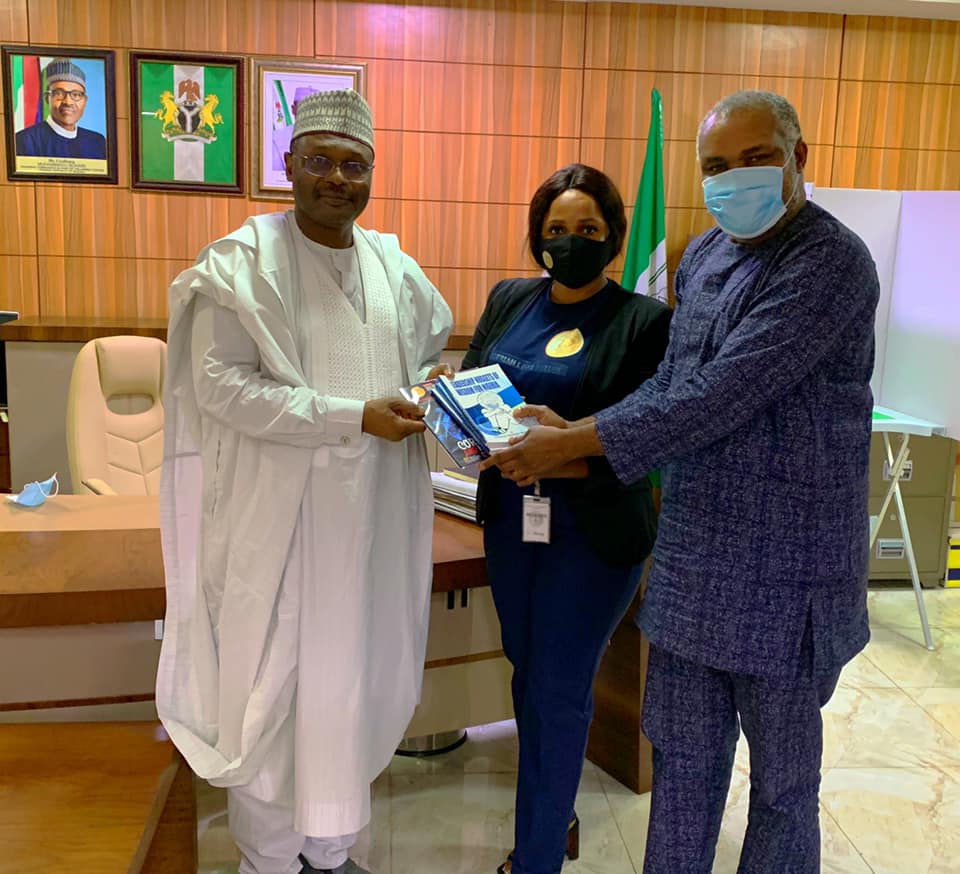
By: Emmanuel Nnadozie Onwubiko
“Be a good human being, a warm-hearted, affectionate person. That is my fundamental belief.”
(-14th Dalai Lama)
“If you judge people, you have no time to love them.”
(-Mother Teresa)
Professor Mahmood Yakubu leaves the Independent National Electoral Commission after ten years at its helm; a decade that will be debated, dissected and, I suspect, ultimately judged kindly by history. President Bola Ahmed Tinubu has formally accepted Professor Yakubu’s departure and, in recognition of his service, conferred on him the national honour of Commander of the Order of the Niger. The handover to the most senior national commissioner, May Agbamuche-Mbu, marks the end of an era and the start of another fraught moment for Nigeria’s electoral architecture.
To assess Yakubu fairly, we must do two things at once: catalogue the hard, demonstrable changes he put in place to modernize Nigeria’s elections, and then judge how those changes held up under the stress test of Nigeria’s deeply adversarial politics. On the first task (the one that will determine whether INEC is stronger on the morning after his exit than it was on the morning of his appointment), Yakubu’s record is substantial, concrete and, in many ways, transformative.
When Mahmood Yakubu arrived at INEC in November 2015, he inherited an electoral agency that had begun to recover public trust after the Attahiru Jega years. Over the next decade, he pursued a program of institutionalising technology, stabilizing processes and expanding access to the register; reforms that were not merely cosmetic but structural. The Bimodal Voter Accreditation System (BVAS) became a fixture at polling units; the machine records accredited voters, stores a picture of the EC8A (the polling unit result sheet) and was designed to reduce the kind of human tampering that has long hollowed out confidence in electoral outcomes. Complementing BVAS was the INEC Result Viewing portal (IReV); a public interface that allowed citizens, parties and observers to compare what was uploaded from polling units with what was being collated at state and national centres. Those two innovations (the biometric accreditation and the result-viewing portal), are not mere gadgets. They rewired the spine of the results chain and moved Nigeria from paper-only opacity toward a model of verifiable transmission.
Technology alone does not make an election free or credible; it makes verification possible. Yakubu’s INEC institutionalised procedures that, for the first time in decades, made it relatively easy for political actors and citizens to detect discrepancies between the result sheets at polling units and what appeared on official portals. This had a practical consequence: in the 2023 general elections, several outcomes that would once have been unthinkable were validated on the ground and in the collation halls. The fact that results ran against the presumed preferences of political heavyweights (from presidential candidates to incumbent governors) is itself evidence that the mechanics of counting and transmission were functioning in ways that allowed voters’ choices to surface. Consider three state-level examples that mattered politically and symbolically.
In Lagos (the commercial hub that was, for decades, a political fief of Bola Tinubu), the Labour Party’s Peter Obi won the plurality of votes, a seismic outcome that spoke to the emergence of new urban coalitions and, importantly, to the ability of INEC’s systems to capture and publish polling unit returns for citizens and the media to scrutinise. That result, confirmed in the data and widely reported by credible international outlets, undercut the narrative that the commission could be bent to produce a foregone conclusion in even the most politically sensitive geographies.
In Osun State, the presidential tally favoured the Peoples Democratic Party’s candidate, an outcome that again cut across expectations and local party machines. And in the Federal Capital Territory, Abuja, the Labour Party’s dominance was decisive and visible on the result portals and official collations. These were not trivial or isolated quirks; they were systemic signs that votes were being counted and reported in ways that allowed the people’s will to be revealed, even when that will clashed with established power.
If one wishes to measure institutional independence by outcomes, look also to the rout of political heavyweights who assumed their influence could buy them seats. At least five outgoing governors who sought to move to the Senate after two terms were defeated by opponents; an outcome that would have been harder to engineer if the electoral market were rigged in favour of incumbency rent. The International Centre for Investigative Reporting recorded the defeats of prominent outgoing governors — Samuel Ortom (Benue), Ifeanyi Ugwuanyi (Enugu), Darius Ishaku (Taraba), Simon Lalong (Plateau) and Ben Ayade (Cross River) — and their losses were widely reported as evidence that the electorate and the electoral machinery combined to produce genuine upsets.
The list of losers includes not only governors but a string of sitting national assembly leaders and committee chairmen who were unseated; a political cleansing of sorts that reflected voters’ impatience and the capacity of the electoral process to enforce it. ICIR’s compilation of National Assembly members who lost their seats in 2023 reads like a catalogue of the vulnerable and the over-confident: minority leaders, long-standing committee chairs and seemingly secure incumbents found themselves out of office when results were tallied and verified. Those outcomes matter because they are measurable, verifiable instances where the electoral process functioned against the grain of personal power.
Bauchi State (Professor Yakubu’s birth state) offers another telling case. In 2023, the presidential vote there swung to the Peoples Democratic Party, handing the opposition a clear victory in the INEC chairman’s own homestead and reinforcing the larger pattern: the mechanics of counting, accreditation and result viewing allowed an opposition triumph in a competitive state where the ruling party expected to be strong. That is a powerful vindication for any electoral manager who sought above all to let the ballot do its work.
Beyond technology and headline-defying results, Yakubu worked to professionalise INEC’s back offices: improving voter registration logistics, expanding the Continuous Voter Registration portal, strengthening training for ad hoc staff and pushing for greater transparency in party primaries. He presided over the creation or consolidation of units within INEC aimed at research, legal affairs and election operations management; slow, bureaucratic work that rarely makes front pages but is essential if an electoral commission is to endure beyond electoral cycles. The Electoral Institute, an INEC initiative, and the commission’s investment in training and data management are part of that quieter, but critical, reform legacy.
All of this, however, must be tempered by honesty. A reformer’s legacy is not simply measured in new machines and portals, but in how the institution responds when things go wrong. The 2023 general election was not flawless. There were well-documented technical glitches with result transmission during the presidential contest; there were delays and disruptions in some states that opened space for suspicion; turnout was depressingly low relative to the number of registered voters, and communication from the commission to the public was sometimes clumsy. Critics (both domestic and international) documented lapses in planning and execution that frustrated expectations that the new technology would magically solve decades of logistical and political problems. Those criticisms are partly fair and partly the byproduct of unrealistic expectations, but they matter all the same.
Nevertheless, when the ledger is balanced, one must concede that Yakubu’s stewardship materially strengthened the capacity of the commission to record, transmit and publish election results. The simple truth is that over his two terms, Nigeria saw the operational roll-out of innovations (BVAS and IReV among them), that converted what had been an opaque counting process into one that could be audited, interrogated and, often, verified by citizens and independent monitors. Where previously suspicion flourished because of lack of transparency, the new systems reduced opportunities for stealthy manipulation; though they did not eliminate them. The point is crucial: independence and procedural integrity were not magically guaranteed by technology, but technology made accountability possible in ways that were previously unimaginable.
The political context in which Yakubu worked should not be ignored. For eight years under President Muhammadu Buhari, public commitments and INEC’s own pronouncements suggested a relative absence of direct presidential interference in the commission’s operating space. Both the executive’s pledges and the facts of contested results that went against incumbent power contributed to an environment in which INEC could, more often than not, execute its mandate without executive fiat. Buhari’s public promise to respect INEC’s independence and the commission’s repeated insistence that it was not under external influence are on the record.
But that is now the past. The present and the future are different. As the transition occurs under President Bola Tinubu, there are deep and widely expressed concerns in the civic and international communities about the stakes of the INEC leadership appointment ahead of the 2027 general elections. International IDEA, CDD-West Africa and other analysts have warned that the appointment to lead INEC in the run-up to another general election is among the highest political stakes a president can face; and that politicising the commission’s leadership risks eroding the very gains Yakubu helped secure. Those warnings are not partisan insinuations; they are sober analyses from electoral experts about institutional risk at moments of transition.
Let me be plain. The verdict that must guide public judgment is this: Professor Mahmood Yakubu performed very well, humanly speaking. He was not infallible; no administrator operating in Nigeria’s febrile politics could be. He made choices, some of which produced predictable controversy. But on balance, he steered INEC toward modern systems, increased transparency, and a greater capacity to resist straightforward manipulation. The evidence is before us in the technical architecture he left behind and the election outcomes that proved, time and again, that votes could surprise the powerful. Those are not idle boastings; they are measurable improvements in how we count and report votes.
If Yakubu deserves praise, he also deserves constructive criticism. Technology is only as good as the contingency plans that sustain it. The commission must, in future, invest far more in redundancy, offline reconciliation protocols and independent audits of the transmission chain. Result-viewing portals must be backed by resilient data centres and clear, rapid public communication when outages occur; IReV’s temporary failures in 2023 became political fodder precisely because the commission had not explained contingencies early and plainly. Training for ad hoc staff must be deeper and earlier; the single largest vulnerability of any electoral operation is the human error that turns a local glitch into national suspicion.
More than operational fixes, however, Nigeria must attend to legal and institutional safeguards that protect INEC’s independence. The next chairperson must not be a political toady; the law must be defended, and civic institutions must be vigilant. We have had evidence these past two cycles that the electorate will punish apparent manipulation; but that is not a substitute for a robust legal firewall that makes manipulation both difficult and costly. International partners, professional domestic observers and Nigeria’s civic intelligentsia should redouble efforts to insist on transparent selection processes and to hold the executive to its obligations to protect the electoral commission’s neutrality.
Finally, Nigerians must not be complacent. A decade of reforms under Professor Yakubu advanced the cause of transparent elections; they are fragile gains. The appointment that follows his exit is the fulcrum upon which those gains will either be cemented into a durable institutional culture or hollowed out by partisanship. If the next occupant of the INEC chair is a partisan surrogate chosen for short-term political expediency, the consequences will be swift: public trust will slump, opposition will be delegitimised, and the bureaucratic scaffolding Yakubu left behind will be repurposed to serve partisan ends. That is not a speculative fear but an historical lesson. It is the duty of every citizen, civil society organisation, and professional body to insist on competence, independence and transparency in the next appointment.
Professor Mahmood Yakubu exits with a record of measurable reform; biometric accreditation widely used, a public result-viewing portal institutionalised, a more professionalised electoral institute and, above all, a string of electoral outcomes that testify to the practical possibility of free and fair contests in Nigeria today. Those achievements do not make Nigeria’s democracy invulnerable, but they have raised the bar for anyone who would try to subvert the will of the people. For that alone, he deserves our thanks, our critique where merited, and our stern vigilance going forward.
Emmanuel Nnadozie Onwubiko is the founder of the HUMAN RIGHTS WRITERS ASSOCIATION OF NIGERIA (HURIWA) and a former NATIONAL COMMISSIONER OF THE NATIONAL HUMAN RIGHTS COMMISSION OF NIGERIA.
Opinion
Marriage: Navigating Rejection and Its Impact
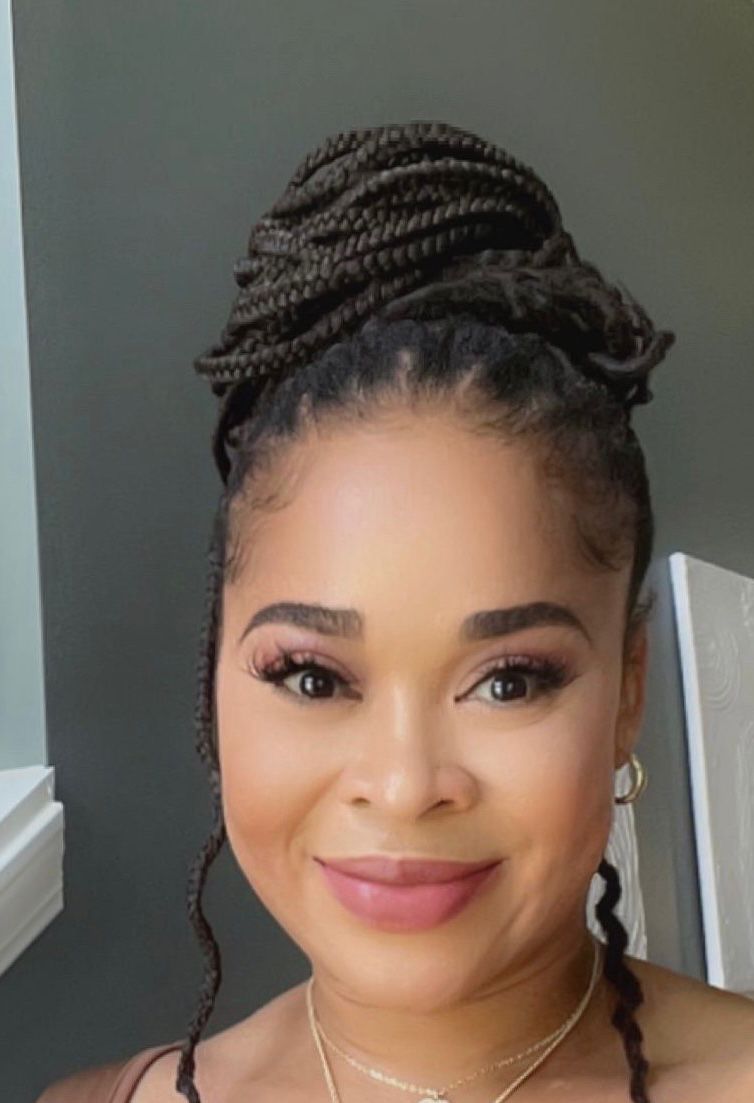
By Stacey Ukaobasi O
Marriage is a union between two individuals, but it often involves integrating into each other’s families. Acceptance from both families can significantly influence the dynamics of the relationship. In many cases, acceptance or rejection from the in-laws can play a pivotal role in determining the fate of the marriage.
Thomas Aquinas is one of the most respected theologians of the Roman Catholic Church, who introduced a profound body of knowledge on the concept and theology of marriage. We will borrow a little from his thoughts before we proceed with our thematic discussion on the dynamics of marriage.
The Permanence of Marriage
Indissoluble by Nature:
Saint Thomas: By the intention of nature, marriage is directed to the rearing of the offspring, not merely for a time, but throughout its whole life. Hence it is of natural law that parents should lay up for their children, and that children should be their parents’ heirs (2 Corinthians 12:14). Therefore, since the offspring is the common good of husband and wife, the dictate of the natural law requires the latter to live together forever inseparably: and so the indissolubility of marriage is of natural law. (Supplement Q. 67 A. 1)
Commentary: Marriage is founded on the primary end of marriage, whence comes a naturally inseparable union. Such permanence brings about the happy result of a stable family.
A Further Aid to the Primary End of Marriage:
Saint Thomas: Now a child cannot be brought up and instructed unless it have certain and definite parents, and this would not be the case unless there were a tie between the man and a definite woman, and it is in this that matrimony consists. (Supplement, Q 41. A1).
However, despite this theological background of marriage, there are several social factors that could necessitate peaceful dissolution, which we will try to encapsulate going forward.
Acceptance and Rejection: The Two Determining Factors
In marriage, acceptance and rejection are two powerful forces that can shape the course of the relationship. Acceptance fosters a sense of belonging, love, and support, while rejection can lead to feelings of isolation, stress, and anxiety. There are two primary types of rejection that couples may face: underground rejection and open rejection.
Underground rejection is subtle and often expressed behind closed doors. Family members may not openly express their disapproval, but their actions and body language can convey their feelings. Open rejection, on the other hand, is direct and explicit. It can manifest as confrontational behavior or outright disapproval from in-laws.
When a spouse feels rejected by their partner’s family, it can create significant stress and tension in the marriage. The couple may feel like they’re walking on eggshells, constantly trying to prove themselves to their in-laws. This can lead to feelings of resentment and frustration, potentially straining the relationship.
The impact of rejection can go as far as the couple feeling reluctant in attending family gatherings because they know there’s no genuine love. This can lead to feelings of isolation and disconnection from the family.
In some cases, having a male child may lead to increased acceptance or tolerance from the in-laws, even if they initially didn’t approve of the wife. However, having female children may exacerbate the situation, leading to more tension and stress in the marriage. This dynamic is often more prevalent among illiterate in-laws, who may hold traditional views and expectations. In some instances, these in-laws may persist in their disapproval, making the woman’s life a living hell regardless of the length of the marriage. The impact of these expectations can vary depending on individual circumstances and the specific family dynamics.
LET’S LEAVE THIS TOPIC FOR ANOTHER DAY!
Now let’s consider the story of a single mother from Enugu Ukwu who relocated to Canada with her two kids. From the outset, her future father-in-law expressed his reservations about her past, asking her how she would feel if her brother wanted to marry a woman with two kids. He further told her that he heard she was a prostitute, which was demeaning and hurtful. Despite this open rejection, she chose to stay and work hard to prove him wrong. Eventually, she married her partner, but the acceptance she received seemed to be conditional, based on the birth of her grandchildren. The absence of her partner’s siblings at their wedding, despite their proximity, further emphasized the lack of acceptance from the broader family unit.
There’s also the story of a man I know very well who traveled abroad and later returned home to marry his longtime sweetheart. Despite his parents’ disapproval, he went ahead with the marriage, and they didn’t attend the wedding. The outcome of their relationship remains uncertain, but it highlights the challenges couples may face when their families don’t approve of their partner.
When a spouse feels rejected or unaccepted by their partner’s family, it can have long-term implications for the marriage. The couple may feel like they’re living on eggshells, constantly trying to navigate the complex web of family dynamics. This can lead to feelings of resentment, frustration, and burnout.
- Acceptance is key. Recognize that your child or sibling has chosen this person for a reason, and they deserve respect and kindness.
- Love and respect go a long way: Treat your new family member with the same love and respect you’d want for yourself or your own family.
- Don’t judge: Avoid making assumptions or judgments about someone based on limited information. Get to know them as an individual.
- Support your loved one. Be there for your loved one and support their decision, even if you don’t fully understand their choice.
By following these principles, you can help create a more positive and loving atmosphere in your family. Acceptance and love are essential for building strong, resilient relationships that benefit both the couple and their children. But also, my dear African women. In challenging situations, prioritizing your well-being and that of your children is crucial. If a relationship becomes overly stressful or toxic, and your partner isn’t supportive, it may be necessary to reassess the situation.
Your mental health and the safety of your children should be top priorities. If the situation doesn’t improve, considering a separation or divorce might be the best decision, regardless of previous marriages, attempts, or even if you have 20 male children for the man. Ultimately, walking away can be a brave and necessary step to protect yourself and your children.
Peace of mind and a stress-free life, especially for the sake of children, is crucial and in conclusion, surrounding yourself with genuine love and acceptance can significantly impact your overall well-being and happiness. It’s essential to recognize when a situation is no longer serving one’s best interests and to take steps to create a more positive and nurturing environment.
Stacey Ukaobasi is the founder of the FORUM FOR CHILD RIGHTS PROMOTION, Nigeria, a Non-Governmental Organisation.
Opinion
Make Politics Healthy, Clean By Emmanuel Nnadozie Onwubiko
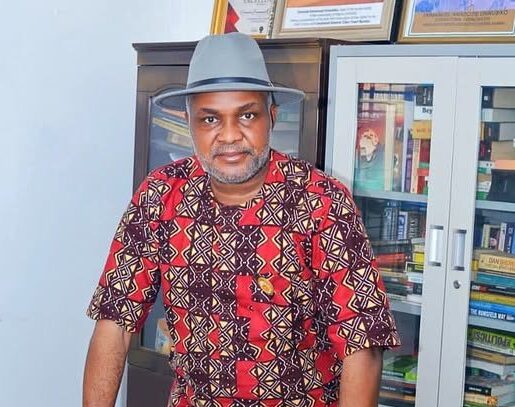
As far as politics and politicking are concerned in Nigeria, any researcher who desires a comprehensive understanding of good governance and democratic principles, should simply look up towards the British politics.
For example, a simple visit to the websites of any of the functional political parties and most especially, the Labour Party, Conservative Party, and even the newly formed Reform Party, would reveal that these parties are preoccupied with explaining their core ideologies and developmental blueprints to better the lives of the British people. They are all after putting up themselves as servants of the people and not masters and power grabbers.
Each of these and many other recognisable and operationalised political parties in Great Britain, are preoccupied with ways to convince the voters that they have what it takes to make living enjoyable and to practicalise democratic process in such a way that everyone in Great Britain is not left behind.
Besides, if you have monitored either the British Broadcasting Cooperation television or the other stylish Broadcasting platform called Sky News, in the last couple of days, you must have noticed that the key political parties in Great Britain have recently held briefing sessions during which the leaders of these parties including the Prime Minister of GB who is of the Labour Party, laboured so hard to win the hearts and minds of the British public. During these public meetings, there were no exchanges of verbal diatribes or malicious accusations being hauled at each other. What dominated their times were the essential elements of their governmental or developmental blueprints.
Whereas the governing Labour Party which is incessantly criticised especially by the Conservative Party that lost election about few months back, for failures to introduce better immigration policy to keep migrants away from invading Britain, busied themselves with telling the British public that their own version of anti-immigration policies are working and that soon the crisis of immigration would be reduced to the nearest minimum.
The Conservative Party on the other hand which is the major opposition party attacked the key economic policies of the Labour Party and were not seen attacking the person of the Prime Minister neither did we see the officials of the Labour Party antagonising or personally attacking the personalities of members of the party opposite. This is called healthy and clean politics characterised by clean and qualitative debates devoid of name-calling and character assassination.
Seeing these healthy conversations from the divergent political leanings in Great Britain, naturally brings us to the inquiry as to whether it is a doable achievement for healthy and clean politics to be practiced in my country Nigeria whereby most people think politics is a dirty game.
It is a fact that politics and politicians in Nigeria are known by the rest of the citizens as persons who lack the discipline and the grace to allow for peaceful, healthy and clean public conversations concerning the economy, security, or the well-being, welfare of the citizens. What Nigerians have seen their politicians do is to stoke up hate-filled rhetorics and to haul attacks on the personalities of the members of their opponents.
Whereas those of the political party controlling power at every level is busy abusing power and using the might of their offices to suppress dissenting voices.
On the side of the opposition politicians, their preoccupation is to plot in an unending fashion on how to topple the government using every available processes or at the next elections. There is never any kind of conversations by these politicians on their political party’s economic development initiatives or blueprints. The fact that state governments controlled by certain parties do everything against the rules of the clean political game to undermine their opponents, should tell us that our own kind of democracy and politics are anything but clean and healthy.
Besides, there is now the new kind of politics of domination that is in practice. The government at the centre controlled by the All Progressives Congress (APC) has started the campaign for the next election to re-elect the incumbent president even when the first four years which he was adjudged by the court to have won in the year 2023 controversial presidential poll, has only gone halfway, but the politicians in the party running the central government have jumped the gun and have kick-started the next campaign which is totally unlawful if we go by the extant provisions of the electoral Act. Sadly, since the federal government controls INEC and the law enforcement agencies, those who go against the law to engage in campaigns for the 2027 elections belonging to the All Progressives Congress are protected by the government.
And so, if you come to Abuja, you would think that the real campaigns for the year 2027 general election have started because in all of the streets of the metropolitan area of the Federal Capital Territory, the political campaign billboards and posters of President Tinubu adorn every available corners. Even the President believes that his government must be composed of only members of his political party as if to say that he is the president of only APC card carrying members. The APC have used federal might and the anti-graft agency of the Economic and Financial Crimes Commission to compel PDP governors to jump ship into the All Progressives Congress of President Tinubu.
The Federal minister who runs Abuja on behalf of the All Progressives Congress, who claims to be a member of the Peoples Democratic Party, has made it almost impossible for any other political party aside APC to use any of the publicly built facilities to hold their meetings even when these facilities have been commercialised. A few weeks back, the FCT ministry announced that the International Conference Centre that government blew over N300 billion dubiously to renovate, is fully booked till the year 2027.
This announcement came against the backdrops of protestations by the newly formed coalition opposition party of African Democratic Congress that they are being denied of the use of public facilities. Also, a five star hotel in Asokoro suspected to be owned by a serving minister cancelled the reservation of the African Democratic Congress only few hours to the commencement of their merger Conference.
Then from Kaduna state came the information that the police have stopped the African Democratic Congress from holding their meeting even when the All Progressives Congress that governs the state holds meetings frequently without any disruption by either thugs or the police. In Lagos State, the APC government allegedly sponsored armed thugs to disrupt the meeting of the opposition ADC just as the same thing happened in Owerri Imo state whereby APC state government allegedly sponsored armed political thugs to infiltrate the Assumpta Catholic Archdiocese Cathedral and chase away the people who gathered for the annual Odenigbo public lecture just because the former governor of Kaduna State who is now in ADC Mallam Nassir El-Rufai was the guest lecturer.
The questions to ask is why should politicians continue to muddy up the political space and causing commotion? Why is it that politicians in government offices do not tolerate their opponents to freely present their programmes? Why are the politicians making the political space violent and intolerably harsh?
The case of Nigeria is distinctive because here, the Nigeria Police Force is not a neutral institution but the hierarchy owes their allegiance to the president that appointed the Inspector-General of Police in which case the police operatives are put at the service of the central government.
The situation we have found ourselves is that whereas politicians have failed to follow the fundamental principles of good governance and democratic process which simply demands accountability on their part, and then the national policing institution that is the primary enforcer of the law, takes side with the political party controlling the government from Abuja, it therefore means that armed thugs can easily be unleashed to attack opposition politicians just so they are not organised enough to contemplate winning against the party in power.
The one danger in this sort of suffocation of the public political space is that if the opposition politicians are forced to go into hiding and to mount campaigns from their hideout, then we are not all safe going by the fact that since obtaining weapons of mass destruction is as easy as passing the junior WAEC, then these opposition politicians driven underground would be left with the only option available: pay freelance armed non-state actors to work as their political Army and since the politicians in government offices have the control of the police and armed political thugs, what then happens during elections won’t be any different from a full-fledged war.
This is where we need to call a spade by its name and to ask Nigerians to wake up and smell the coffee. Nigerians have a duty to drum it up to the government at all levels, to stop the ongoing political war of the political parties before the nation is pushed into a major war during the 2027 elections.
I say this because the people who are now in the opposition were once in government and so have the right connections to the men of the underworld whom they can always call upon to be enlisted as their foot soldiers. In these warfare and tumultuous exchanges of verbal abuses by politicians both within and outside of government, no party has the monopoly of violence because from both ends, there are persons with very deadly mindsets.
A simple experiment would reveal that there are dangerous people in all of these parties in Nigeria both inside and outside of governments: the people in government are openly telling the opposition politicians that over their (government officials) dead bodies, will the opposition coalition take over government in 2027.
Similarly, the actors in the opposition political camp are also telling those of their rivals inside government that they will do everything humanly possible to kick them out of their public offices in the year 2027. So my hypothesis is this: if these people in government are so desperate to win the 2027 poll and they wield powers and influences over the military, the highly biased Nigeria Police Force and most dangerously, they control the so-called Independent National electoral commission, it means that when two elephants fight, the grass suffers.
Therefore, how then do we expect these desperate politicians in public offices to allow for free, peaceful, transparent and fair elections in 2027? Secondly, since the politicians in the opposition coalition are mostly individuals who have been in and out of government and so have access to hire the bad boys with big guns, and they are striving to dethrone the politicians holding offices who are too desperate to allow for a fair contest, what may happen would be tantamount to a civil war unless something happens to deflate these over-bloated political ambitions from both divide.
Let me provide the context that depicts the warlike political atmospherics in today’s Nigeria.
Around January 2025, the Secretary to the Government of the Federation, Senator George Akume, said it was not yet the turn of the north to produce Nigeria’s president in 2027, warning that to do otherwise could undermine the nation’s unity and destroy her.
He, therefore, advised the Northern interest groups to wait until 2031 before running for the presidency, with a caveat that, it was not their time to throw their hat in the ring.
Akume, who spoke as a guest on a television political progamme against the backdrop of deft political scheming and coalition by different groups with the aim to take over power from the ruling APC and succeed President Bola Tinubu in 2027, declared the current president would serve two terms of eight years.
“It is not yet time for the North. This is my appeal to them. Don’t let us destroy our country because of personal ambition. It is my advice and this has been consistent. Do not let us rock the boat.
“Let us allow this power to reside in the south for eight years and then it will come to the North. To do otherwise, honestly is to destroy this country.
“This democracy and people are entitled to their views. Again, in democracy, you always have groups springing up and forming alliance, creating movement and intending to transform them into political parties.
“The political ball, quite frankly, has started to roll and there is one group that is headed by the former governor of Kano State and the Secretary is from Benue State, Emmanuel Jume. He was a member of House of Representative before.
“People have the right to form alliances but my candid advice to my people in the North is that if you should form your alliances, make sure your candidates are from the South. Why? Because that is one thing that will guarantee our territorial integrity and unity,” he said.
Reacting, former Vice President, Alhaji Abubakar Atiku, queried the grounds of equity and fairness in Akume’s admonishment.
In a statement by his Media Adviser, Mazi Paul Ibe, he pointed out that the South has had more years on the presidential seat than the North, counting from 1999.
Atiku said, “Where, then, does true equity and fairness reside? By the year 2027, the South will have enjoyed 17 years of leadership — eight years under Obasanjo, five years under Jonathan, and four years under Tinubu — while the North will have experienced only 11 years, with Yar’Adua serving three and Buhari eight. This results in a disparity of six years between the North and South, casting a shadow over the balance of power.
“In any case, the power to elect and vote out their government lies firmly with the Nigerian people, entrusted to them upon the government’s ability to prove itself worthy of the people’s ballot. But has the Tinubu government demonstrated that it deserves to be re-elected? The answer, alas, is as clear as the heavens themselves — God forbid!”
Tinubu had defeated Atiku in the 2023 presidential election, even as the latter challenged the president’s electoral victory up to the Supreme Court which eventually affirmed Tinubu’s victory.
Also, a serving senator and former governor of Sokoto State Alhaji Aminu Tambuwal gave a television interview in which he professed that he has devoted his time to ensure that Tinubu is defeated in the year 2027 election.
Dateline: February 7, 2019, Reuters reported that a key ally of the then Nigeria’s President Muhammadu Buhari said people from overseas who sought to intervene in the country’s election to be held in little over a week then would go back in body bags.
Nasir El-Rufai, then governor of the northern state of Kaduna, made the comments during a discussion programme on the Nigerian Television Authority when the topic of the international community’s role in elections was raised. It followed an international outcry over the suspension of Nigeria’s top judge.
The discussion about the role of foreign countries in elections was raised on the programme in which reference was made to concerns expressed by the European Union, the United States and Britain over the suspension of Chief Justice Walter Onnoghen over allegedly breaching asset-declaration rules.
“We are waiting for the person who will come and intervene. They will go back in body bags because nobody will come to Nigeria and tell us how to run our country,” said El-Rufai.
“We have got that independence and we are trying to run our country as decently as possible,” he said.
That same El-Rufai is now in the same camp with Atiku in the African Democratic Congress.
So there is the balance of threats and therefore the political atmospherics and climate is that of fear because politicians wanting to retain power by all means including using crooked machinations and their rivals in the opposition political camp, are well equipped with the powerful tools of violence to try to torpedo the other to win the 2027 presidential election.
This is exactly why we are calling for a clean and healthy politics to ensure that Nigeria does not burn because of the 2027 polls. Unfortunately, those who can mediate peace are warmongers. Who bails the cat? The people of Nigeria of course.
Emmanuel Nnadozie Onwubiko, is the founder of the HUMAN RIGHTS WRITERS ASSOCIATION OF NIGERIA and was NATIONAL COMMISSIONER OF THE NATIONAL HUMAN RIGHTS COMMISSION OF NIGERIA.
-

 News10 months ago
News10 months agoNUJ FCT Council Mourns The Loss of Senior Journalist, Isaiah Abraham
-
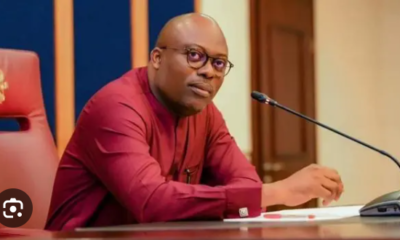
 News10 months ago
News10 months agoHURIWA Declares Governor Fubara’s Emergence as Divine, Urges Support for Rivers State’s Progress
-
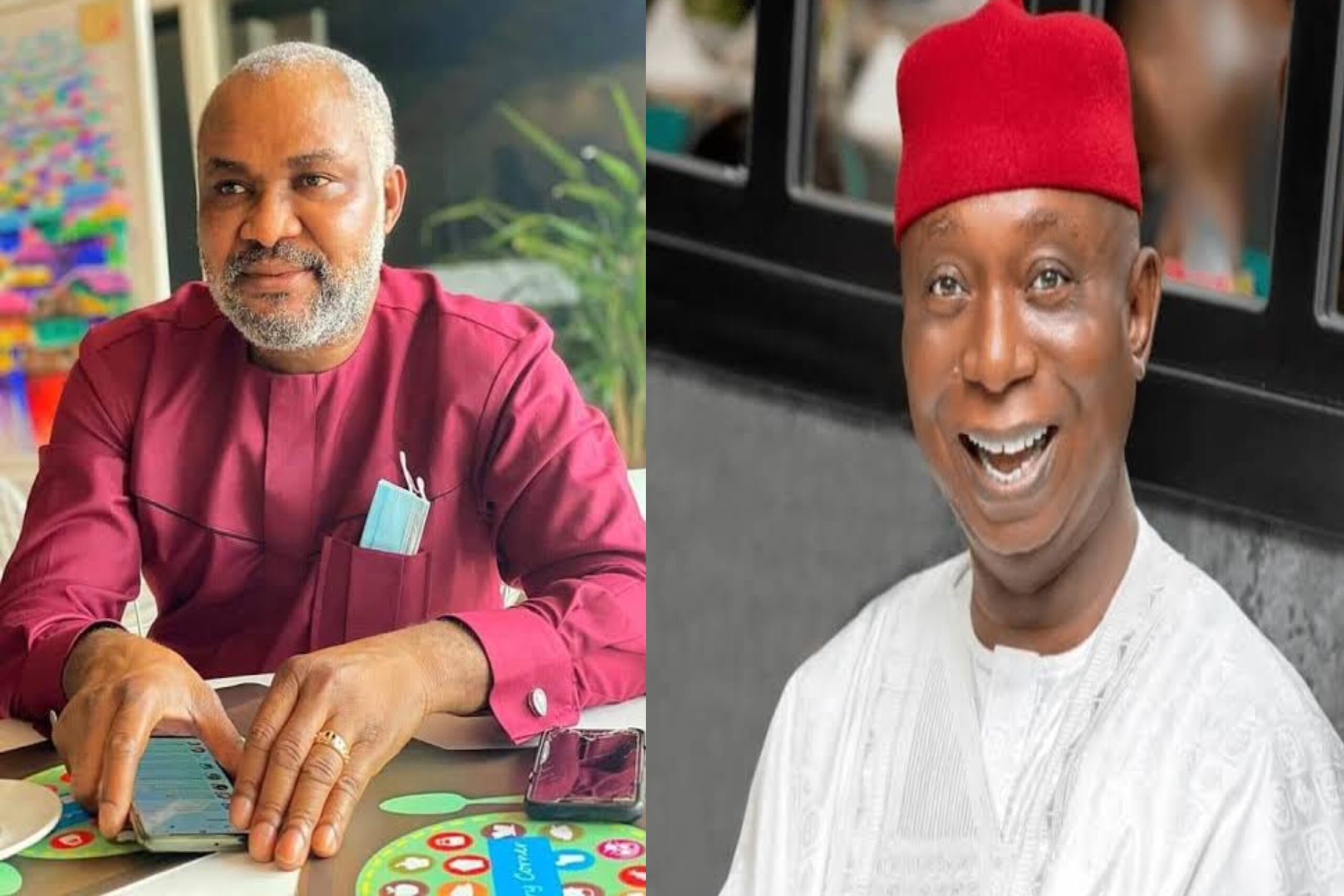
 News10 months ago
News10 months agoAnioma State as panacea to South-East marginalization – By Emmanuel Onwubiko
-

 Opinion8 months ago
Opinion8 months agoNIGERIAN WOMAN IN DIASPORA, CULTURAL SHOCKS – By Stacey Ukaobasi Onwuegbuchulam
-
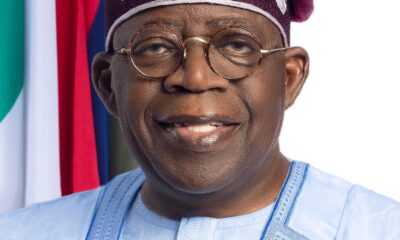
 News11 months ago
News11 months agoHURIWA Blames Serial Stampedes on Weaponized Poverty, Warns of Nigeria’s Rapid Decline
-
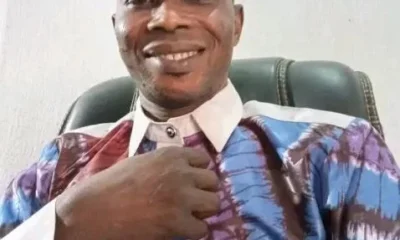
 News10 months ago
News10 months agoJealous Husband Stabs Nigerian Bishop To Death Over Suspicion Of Sleeping With Estranged Wife
-
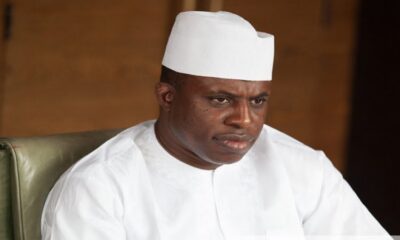
 News10 months ago
News10 months agoTinubu sympathizes with ex-speaker Bankole on the death of his mother
-
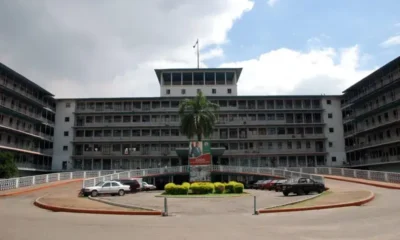
 Health8 months ago
Health8 months agoA complete list of 154 healthcare facilities across Nigeria that provide free emergency obstetric care and VVF (Vesico-Vaginal Fistula) surgeries.


